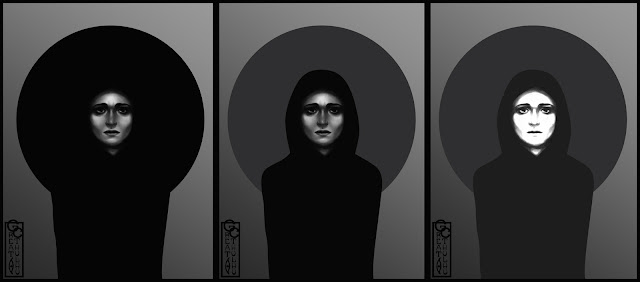Sang-Hoon Degeimbre: 'Being a Sommelier Made Me a Good Cook'
SANG-HOON DEGEIMBRE: 'BEING A SOMMELIER MADE ME A GOOD COOK'
A chat with the chef of 'L'air du temps' in Belgium about how being a sommelier allowed him to shape his culinary identity and sensitivity.
Sang-Hoon Degeimbre is one of those atypical people. The chef of L'Air du Temps in Belgium, born in South Korea and adopted by a Belgian family, began his adult life by embarking on pharmacy studies. Quickly, the young man realized that he was on the wrong track and enroled in a hotel school in Namur, followed by a school of butchery, before becoming a sommelier.
In 2000, Sang-Hoon Degeimbre and his wife, Carine, finally decided to become their own bosses by opening their first restaurant, L'Air du Temps in Noville-sur-Mehaigne, a property set in five hectares of land. Soon, the duo decided to grow their own vegetables, herbs and aromatic plants and even hired a full-time farmer to maintain the land. In 2000, the couple won their first Michelin star, then a second in 2008.
Over nearly twenty years, the cuisine of Sang-Hoon Degeimbre has evolved, adapting to new trends before finding its own identity, based on local products.
Why did you create your own garden for your restaurant?
L'Air du Temps is located in a region rich in cereal crops, but with very few vegetable crops. Since the early days of opening the restaurant, we thought that it would be nice to have our own garden, not to follow a fashion phenomenon, but out of necessity. For seventeen years, we have grown our own vegetables and herbs. We have a friend who was a banker and stopped everything who now takes care of our garden. Today, it's two hectares, we have full-time gardeners and we pay close attention to waste, waste and sustainability in what we produce.
You have also opened a second restaurant, the San, in Brussels. Can you tell us more?
If L'Air du Temps is essentially based on local cuisine, the San is inspired by my different travels. It serves dishes in bowls that are tasted with a spoon. All these round objects bring back memories of childhood, when it was not yet possible to sort out what was on the plate and we ate with gusto. On the content side, I draw on the different cultures that I have discovered... Tastes, spices elsewhere. There is really a fusion of everything I've been able to eat here and there. Sometimes I also serve signature dishes from L'Air du Temps in San, such as Liernu, which is 100% vegetable. It is a dish that evolves with the seasons. In the spring, many flowers are added, in the autumn, there are rather a lot of rootsand in winter, lacto-fermented vegetables.
Does your former sommelier job help you to design dishes?
In my opinion, wine is what makes me a good cook. As a sommelier, I had to work on my olfactory and gustatory sensibility, to detect nuances, balances between sugar and acidity. Today, I use that to design my dishes. Every Thursday at the restaurant, we organize "Jeudi vin" or "Wine Thursday" where customers can bring their own bottle. They tell me in advance what they plan to drink and I prepare a dish according to the wine. I love that!
You now have two stars in the Michelin Guide. Is it a goal to get a third?
Having stars has never been my goal. But of course when you have two, you could say that we are closer to three than zero. My policy is to go always higher, so why not a third star. It would be more a sense of team pride than a personal one. But even if all of this has a huge impact on the profitability of the restaurant, the Michelin Guide has never put pressure on me. The only pressure I accept is the pressure I put myself.
Are there any culinary trends that you are particularly interested in right now?
I'm always interested in trends. It's like logic in my journey. Currently, I am very interested in everything related to the human. This notion takes more and more space in the world of cooking. There is a lot of talk about the chef's strengths but also about their weaknesses and their doubts. In the kitchen, we sometimes work like robots, but we mustn't forget that we are only human. I think more and more concepts will come out of this in the coming years.
The other theme that interests me is sustainability and anti-waste. For example, we pay close attention to water when trying new cooking methods. For some time, I cook a lot of food in the leaves "ugly" that we get in the garden. They contain 80% water and are very fragrant, so ideal for cooking. It avoids waste and it brings a touch in addition to the dish.
In your opinion, what place does Belgium occupy on the world gastronomic scene?
In absolute terms, Belgium is a country that is a little forgotten on the gastronomic scene. We are essentially focused on the "battle" between Nordic cuisine and Southern countries, or French gastronomy. But we must not forget that Belgium is at the crossroads and at the centre of Europe. So I think it's still a country of influence.
Do you have an ongoing project that you would like to talk to us about?
We are planning a big transformation of L'Air du Temps to mark our 20th anniversary. We will have more rooms, a more advanced restaurant in the garden, more comfort... We also have a farmhouse on 1.200m² and we would like to enhance this space. All this is planned for April 2018.
http://bit.ly/2Fzy1Bg


Comments
Post a Comment